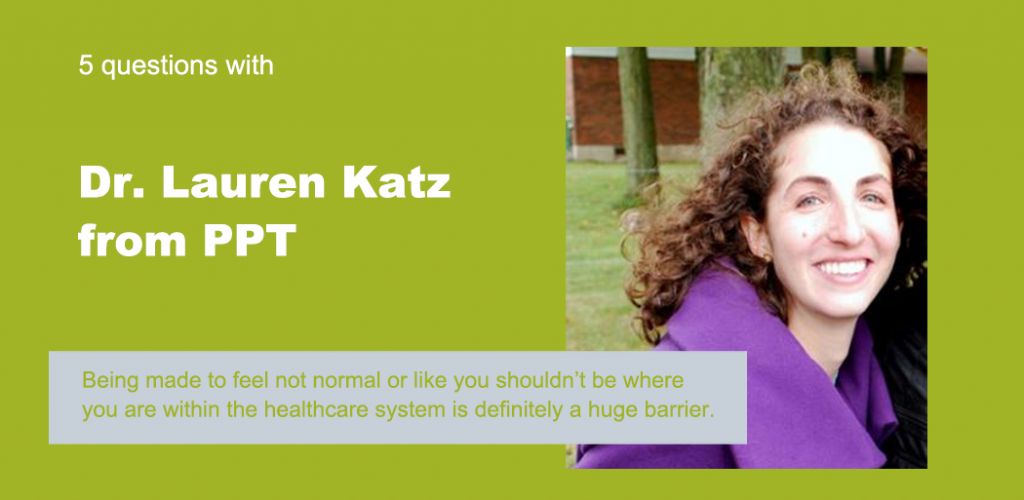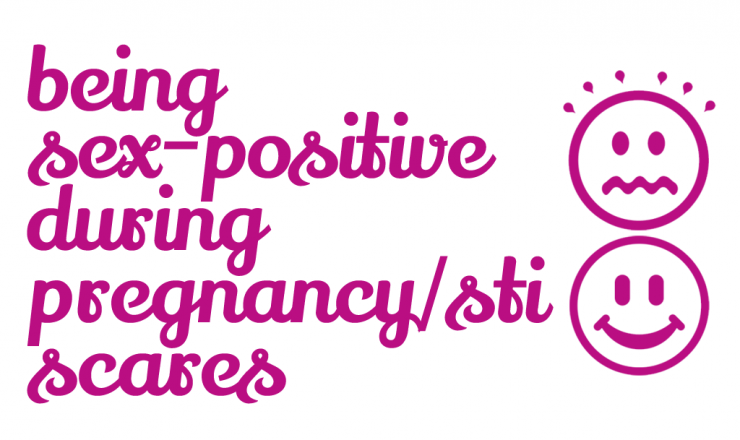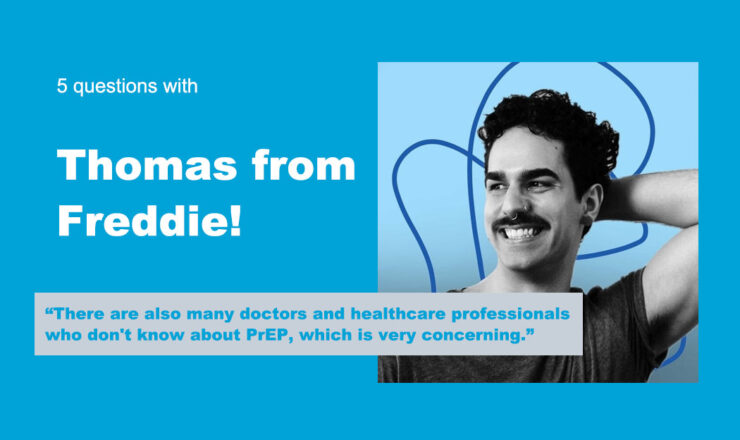

Curious about what health services are like at Planned Parenthood Toronto? We sat with Lauren, a family doctor who’s been in practice for almost three years, to find out! Lauren works both at PPT and in a family medicine clinic, where she sees people from birth until death, and has been at PPT since October 2016. She also acknowledges baking as her other passion of choice!
Thanks so much for chatting with us, Lauren!
That’s a good question! We have a thorough orientation for two weeks where we meet with almost everybody at every level who works at PPT (which includes admin, people over in Community Programming, volunteers, etc.) so that we get an idea of what everybody does here. In addition to that, I had a few sessions of trans* training workshops, because I didn’t have any prior experiences with trans* care. That was set up in addition to all the other trainings, to make sure I could see all the clients here at PPT.
PPT tries to ensure this right from the hiring process. The interview process is a 45-minute panel interview, where they ask you a lot of different questions about your views on reproductive health, on sex positivity – essentially, everything that spans the scope of what PPT stand for. They want to know how you feel about those things before you’re hired on, so that if you’re hired, it’s with the understanding that you are someone with values that align with those of PPT.
I think there is also a lot of client feedback mechanisms that give criticisms or compliments if they’ve had good service here, and those things add up. For example, if someone is repeatedly saying “I didn’t get the services that I wanted through Planned Parenthood”, then that would be followed up, particularly if people do lodge a complaint or leave a specific comment.
With everyone that I work with, there’s a sense of pride in being able to provide care that is non-judgmental, friendly, open, sex-positive, gender-positive – all the values that are PPT values. If clients aren’t receiving services up to those standards, they are more than welcome to leave comments.
I think that that’s not something that is unique to Planned Parenthood. In all clinical environments, clinicians need to be aware that when clients come in there is going to be a perceived power differential, because there is a power differential. Clients are the ones coming in asking for something, and we are the ones saying yes or no, depending on what is appropriate.
For me, I think being aware of that is important. Explaining to people the reasons for doing something, or not doing something, making sure people understand what is being done – all those things help in addressing power differentials. If people are coming in for a specific reason, you really want to ask some questions to get some background on them, and not just medically, but their social context too, so that you can better care for them.
In addition, asking questions like, “Was there anything else I could’ve done for you?” “Do you have any questions?”. You need to constantly check in with the person to see that they are satisfied, because ultimately, what we’re doing, our job is for the client. If they’re not leaving satisfied with their experience, then what I’ve done is useless. There’s no point ordering a bunch of tests for myself; I need to make sure the client is on-board, and that my services are tailored to them.
I actually find that it isn’t. There’s a lot of support here, and the appointments are longer. For me, that’s a big thing: in my other clinic, no matter what you’re coming in for, the appointments are 15 minutes long, and you’re seeing people for 3-4 hours at a time. There’s not necessarily time for administrative things you may need to do, like paperwork you need to be doing on the side. Here, I feel like there are proper measures in place to ensure that you can provide good care for people, and so I find it to be a great place to work.
I think a major part of it is just accessing care and knowing where to go. You can have lots of negative experiences where someone isn’t going to be attuned to the needs of the LGBTQ community. Even something like having a preferred name: here at PPT, you get to fill in your preferred name, what pronouns you use (if any), you get to fill in as little or as much of the registration as you want, you get to specify how you want to be reached – all those things are to allow for the person to feel like they can be themselves here. I think that’s slowly making its way into the mainstream of hospitals and clinics, but it’s not always there. So, for example, if you have a client whose gender expression doesn’t align with the sex on their health card, it could cause confusion to staff not trained to be open and non-judgmental. Being made to feel not normal or like you shouldn’t be where you are within the healthcare system is definitely a huge barrier.
Specifically, for trans folks, accessing services is often a barrier because not everywhere is trained to provide the specific services that trans folks may need. We’re lucky here at PPT to have volunteers, and staff, like case coordinators, and mental health workers – these are all people who have extensive knowledge on specific resources that can be amazing for the LGBTQ community, and if that’s not available everywhere, that can be a barrier as well.
To learn more about services offered at PPT, or to make an appointment, please visit ppt.on.ca.
Last Updated: August 2021

Sex negativity can make it hard to shake off the stress and worry of pregnancy or STIs after getting negative test results or reassuring information. So how do we try to be more sex positive in these situations? Let’s find out!

When it comes to sex and sexual health, how do we feel about risk? What are things we can do to reduce risk of things we don’t want to happen? For the first post in our What Is Risk series we’re talking about Pregnancy Risk!

Freddie is a Canadian health organization offering access to PrEP, a pill that reduces one’s risk of acquiring HIV by 99%. They provide inclusive and convenient care focused on queer and trans communities. Check out our interview to learn more!